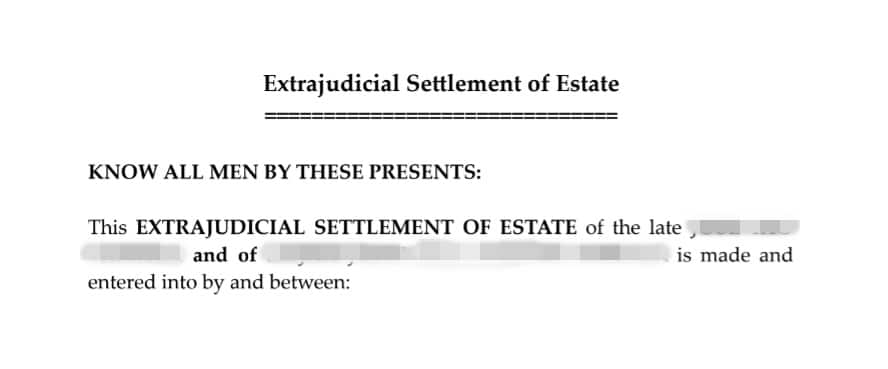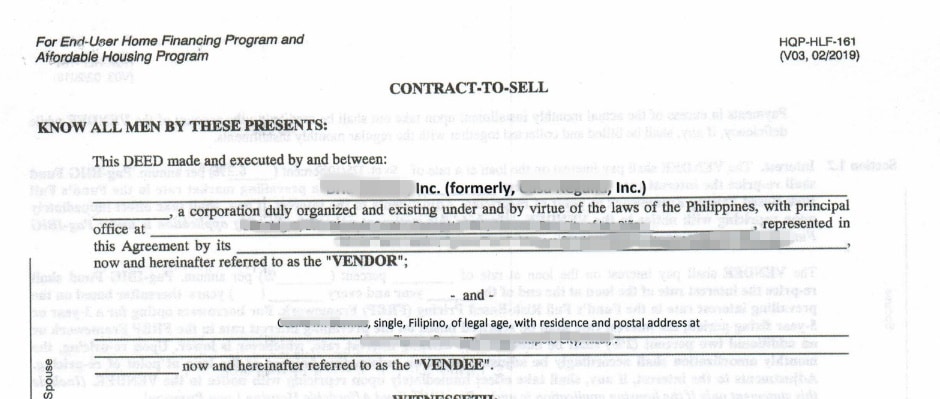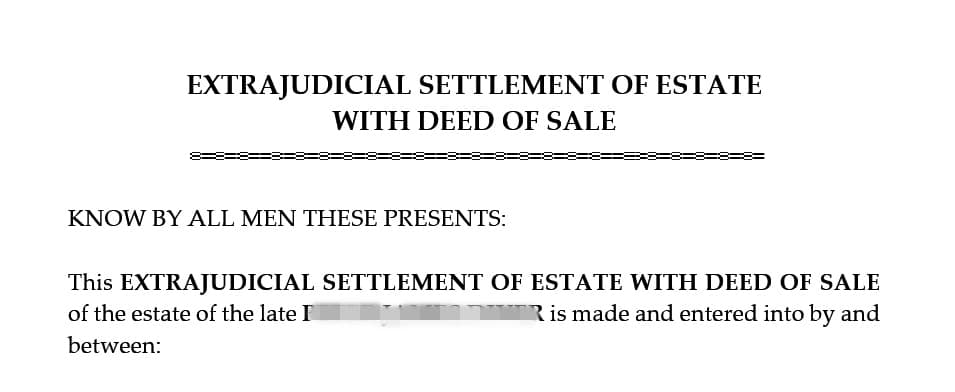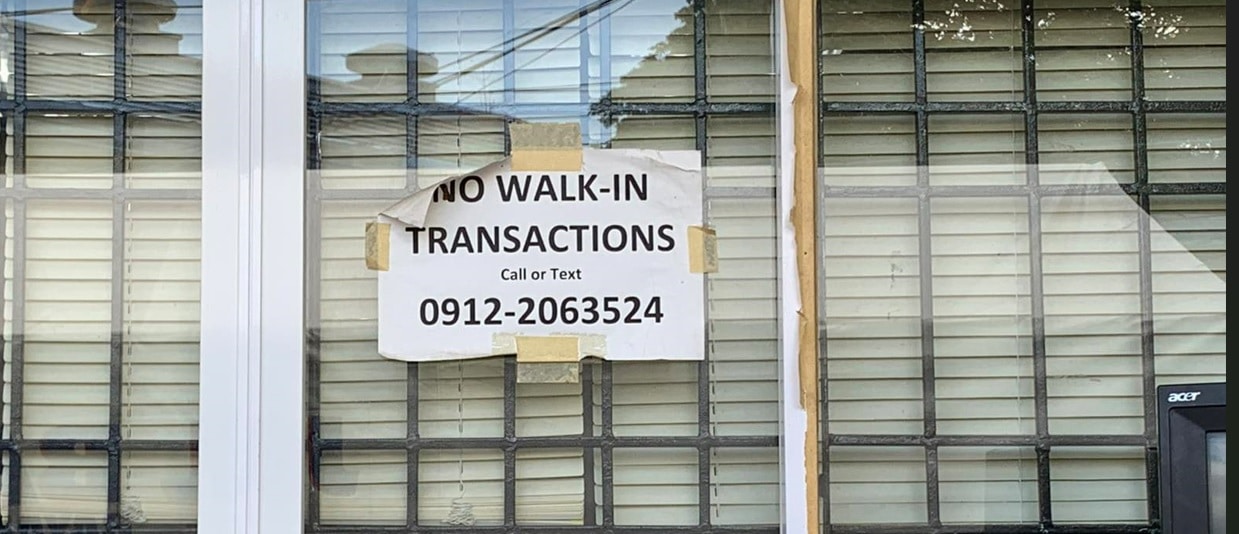Extrajudicial Settlement with Deed of Sale in the Philippines

It is possible to combine EJS and Deed of Sale under one document
An Extrajudicial Settlement with Deed of Sale in the Philippines is a document used when heirs are selling inherited property to a new owner.
This document is used to:
- Settle an estate
- Sell the inherited property
Some people just try to sell the inherited property without settling the estate.
But an estate must be settled so that a buyer can transfer the land title to their name.
So, people combine settling the estate with selling to the buyer in one effort and document which can end up saving them effort and a little money.
Below, I’ll answer common questions on an Extrajudicial partition with sale and outline the requirements, cost and process to do it.
What is an Extrajudicial Settlement?

Extrajudicial Settlement of Estate is a document that settles an estate so that the property can be transferred to the heirs.
An extrajudicial settlement means a document where the details of how a deceased’s properties are divided between heirs are laid out.
An extrajudicial settlement is sometimes called an extrajudicial partition of estate.
It is also often shorted into its initials EJS. (If you’ve come across EJS and you are wondering what an EJS meaning in law or the EJS meaning in real estate is, it is basically still referring to an Extrajudicial Settlement. I’ve also seen this called a declaration of heirship with deed of sale, but that is more a misnomer).
It is signed, dated and notarized.
It must also be submitted to the BIR and the BIR estate taxes must be paid.
An Extrajudicial Settlement is generally very easy to fill up when you have all the required property documents.
However, when you don’t have the documents or the information, it can be very, very challenging to do.
What is a Deed of Sale?

A deed of sale is a document that transfers property from the original owner to a buyer.
A Deed of Sale means a document where the details of the sale of a property are laid out.
It identifies the owner and the buyer and has property details.
It is signed, dated, notarized and submitted to the BIR.
BIR taxes must be paid on the Deed of Sale.
The payment of the taxes and the Deed of Sale itself are needed so that the BIR can release an eCAR, which then allows a land title name change from an original owner to a new one.
What is an Extrajudicial Settlement with Deed of Sale?

A combined Extrajudicial Settlement and Deed of Sale is the best option if an estate already has a serious buyer
An Extrajudicial Settlement with Deed of Sale means a document where the details of the estate and who the estate will go (such as the buyer) to are itemized.
When combined, there is only one effort to go to the BIR.
It also protects the buyer since he can see the estate partition is actually going forward thus allowing the transfer of the property to his name.
It might also save a little bit on transfer fees at the Registry of Deeds and City Hall.
What are the requirements for Extrajudicial Settlement with Deed of Sale?

Documentary requirements must be complete before the BIR accepts it for assessment
Let’s pretend we have one property from deceased parents and there are 2 heirs.
The requirements for Extrajudicial Settlement of estate in the Philippines are the following:
- Original Land Title
- Certified True Copy of Land Title from the Registry of Deeds
- Tax declarations
- Certified True Copy of the Tax declarations
- Death and marriage certificates of the parents
- Birth and Marriage certificates of the heirs
- Estate TIN and TIN of the heirs
Now, because this is Extrajudicial Settlement with Sale, we must also add the following:
- Buyer’s TIN
- Buyer’s Birth and Marriage Certificate
- Details of the sale
What if I am missing documents for the Extrajudicial Settlement of Estate with Sale?

An ONETT officer can easily deny your application if you miss one of the documentary requirements
If you are missing documents for the Extrajudicial Settlement with Deed of Sale, you might need to spend more time and money to get the documents.
If there are errors in the documents or lacking information, you might also need to budget more to find the information.
Let’s take a few examples.
- Original Land Title is lost
If the Original Land Title is, then you MUST GO TO COURT. There is no other way to get a new Original Owner’s land title. You can settle the estate but transferring to the buyer must wait until the Reissuance court case is done as an Original Owner’s land title is needed for transfer.
If there was never a land title, then you will have to go through a titling process. The titling process can take years and also requires a lot of documents. Be prepared to spend a lot of time and money.
- Original Land Title has errors

Make sure that the ONETT officer has given you a compliance form so you know who to look for on your next round of visit
If the Original Land Title has errors, then you might have to go to court or the Registry of Deeds to correct those errors, depending on how significant they are.
- Death Certificate is missing
So long as you have complete details such as place, name and date of death, the Death Certificate can be retrieved. However, if you don’t have firm dates and are unsure of the name, this will entail physically going to the Civil Registrars, the National Archives or the Spanish Archives. If you don’t find the information, it will be very, very difficult to settle the estate.
These are only some of the examples.
I’ve had people inquire with us but they only have a name and do not have any property documents.
If that’s the case, completing the deed of extrajudicial settlement of estate with absolute sale becomes very difficult since it would lack the information in these missing documents.
What is the process of Extrajudicial Settlement in the Philippines (with deed of Sale)?

Some government offices don’t accept walk in so try coordinating with them by phone or email first
The process of extrajudicial partition of estate is simple (although time consuming and very labor intensive) if you have all the requirements.
- Gather the documents
- Create the Deed of Absolute Sale with Extrajudicial Settlement
- Heirs and buyer must sign the Deed of Absolute Sale with Extrajudicial Settlement
- BIR submission
- BIR Estate taxes are paid
- BIR eCAR is picked up and transfer to the buyer is done at City Hall and the Registry of Deeds.
As you can see, a lot of steps in an Extrajudicial Settlement of Estate with Deed of Sale is prior to submission at the BIR.
These steps prior to the submission are usually difficult for people because they don’t have the documents or there are problems in the documents.
These steps might also be difficult because the heirs are not on good terms.
Additionally, heirs might not be able to settle the estate tax (extrajudicial settlement BIR requirements are mainly the documents above but really nothing is done if you cannot pay the estate tax.)
How much is an Extrajudicial Settlement?

The tax due for the sale and EJS will be combined too
The cost of an Extrajudicial partition in the Philippines up to transfer can be expensive.
Below are the costs:
- Lawyer’s fees
- Accountant’s fees
- 6% Estate tax of the total value of the estate
- Transfer fees at the city hall and the registry of Deeds
- Unpaid Property Taxes
- Late fees when you don’t pay the BIR estate tax in time
It is already expensive to settle an estate due to the 6% BIR estate taxes, which would mean that you would pay 600,000 BIR estate taxes for a 10,000,000 estate.
However, if you don’t settle the estate as soon as you can, this will just get more expensive since late fes will be added EVERY YEAR that the estate is not settled.
So, if you are trying to do an Extrajudicial partition of property in the Philippines, do it as soon as you possibly can.
Do all heirs have to agree to sell property in the Philippines?

It is important to settle family matters first before processing an estate settlement
Yes, all the heirs have to agree to sell property for a Deed of Extrajudicial Settlement of Estate with Absolute Sale.
If the heirs cannot agree on the sale, then they can split up the property but they still have to settle the estate.
If the heirs cannot agree on how to even split up the estate, then they will have to go to court.
Going to court to settle an estate is called a Judicial Partition of Estate in the Philippines (vs. An Extra Judicial Partition of Property where extra in front of judicial make the phrase mean “out of court”)
A court order for transfer of property detailing how it should be divided will be released after a successful court case, but it is really best to avoid court.
Court is expensive and takes a lot of effort.
You can hire a lawyer to go to court but you might realize it is best to just talk amongst yourselves.
Your best course of action is to negotiate with those that don’t agree and come to a compromise.
You can hire a lawyer to negotiate, but it will also cost money. You are better off trying to settle it on your own and bracing yourself for difficult conversations.
Extrajudicial Settlement with Deed of Absolute Sale Philippines: Final Thoughts

Gather the information as it will be a lot easier for you and your lawyer to assess your case
When we are asked about the sale of property of a deceased person for an unsettled estate, we may recommend this path especially.
This protects the buyer because the settlement of the estate is the same document where the sale is recorded. The assures the buyer that the property is actually going to him.
This also helps the heirs since there is just one effort. They only have to sign and work on one thing, instead of doing a Deed of Sale and then a Deed of Partition in the Philippines later on.
It is easier logistically due to that.
Due to the above, and EJS with Deed of sale is often used when children are selling property of their deceased parents in the Philippines.






0 Comments